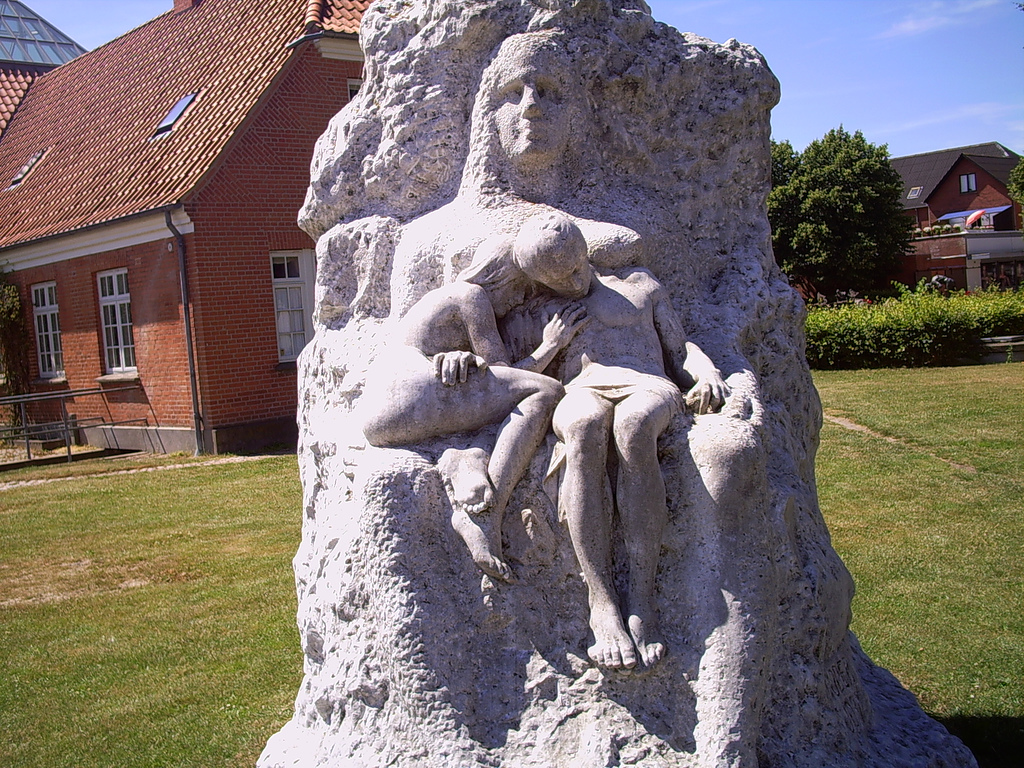Jord, also referred to as Fjörgyn, Hlóðynn, Jörð, Fold, and Grund in Old Norse is most notably referred to as the mother of Thor. However, little is known of the origins of Jord, her relationship to Odin, or much of her history within the Norse mythos.
She remains a bit of a mystery, with few mentions of her in the Prose Edda or Poetic Edda (although it is postulated that many of her references have been lost to time).
What is Jord the Goddess Of?
Jord is a jötunn (giantness) and goddess of Earth.
Translated into old English, Jord translates to ‘earth.’ In some passages from the Prose Edda, she is the personification of the earth. While her mentions in skaldic poetry are rare, there are other clues to her mysterious origins. Because the name Jord translates to ‘earth,’ some believe that Jord and the goddess Nerthus are about the same person.
Nerthus translates to Terra Mater (or Mother Earth). In skaldic poetry, many believe the names Jord and Nerthus are used interchangeably.
In Anglo-Saxon practices, prayers to the goddess Jord often involve prays for herbal remedies for sickness, prayers for crops, or prayers for personal prosperity.
Jord’s Role In Norse Mythology
Even though there is little known about Jord, her role remains pretty significant. In the Lokasenna poem (Poetic Edda), Thor is referred to as ‘Jarðar burr,’ which translates to the son of Jord.
While Frigg is referenced as Thor’s mother in the Marvel movies, since she is the wife of Odin, that isn’t the case in Old Norse Mythology.
The god Odin’s relationships were a little messy, and he wasn’t a staunch subscriber to monogamy. His firstborn son, Thor, was the result of a relationship with Jord, the giantess, rather than his wife, Frigg. Outside of the Lokasenna, there were references to Jord as Thor’s mother in the Prose Edda’s books Gylfaginning and Skáldskaparmál.
Unlike the Greeks, Germanic texts didn’t provide extensive details about the personal relationships of the gods. While many texts remain lost to time, it’s quite possible the origins of Thor’s conception were never documented.
Jord’s Family Relations To Other Norse Gods
Jord is of jötunn descent, an elder giant race, and is postulated to be older than Æsir. She is considered an influential goddess of Asgard.
She is most notably referred to as Thor’s mother and the mistress to Odin, but her relations with other Norse Gods don’t end there.
Her mother was a giantess named Night, aka Nott, who birthed Jord by Narfi, her second husband. Nott is the personification of night. Unlike Jord, Nott (or Night) is mentioned frequently in the Prose Edda and Poetic Edda.
Why Is Thor Known as Odin’s Rightful Heir?
If Thor was the product of Odin’s mistress, why is he regarded as one of the most powerful gods and the rightful heir to Odin?
Odin and Frigga had two other sons, Balder and Hodr, who were well-loved and respected. However, neither of their sons achieves the mantle of Odin’s heir. Why?
Some historians believe that Jord’s role in Norse mythology was far more influential than the surviving texts portray.
There may have been a time when Jord played a much more influential role in Germanic texts and gave reason to land her son Thor as one of the most powerful Gods in the Pantheon.
Why is there So Little Known About Jord?
While Jord is the mother of one of the most powerful gods, little is known about her. She is only referenced in passing in the Prose Edda and Poetic Edda. She never speaks, and there is no anecdotal evidence (aside from mentions of her name) of her existence. How can the mother of the rightful heir to Odin prove such a mystery?
Some historians speculate that once Odin married Freyja, recounts of Jord were intentionally lost to time.

